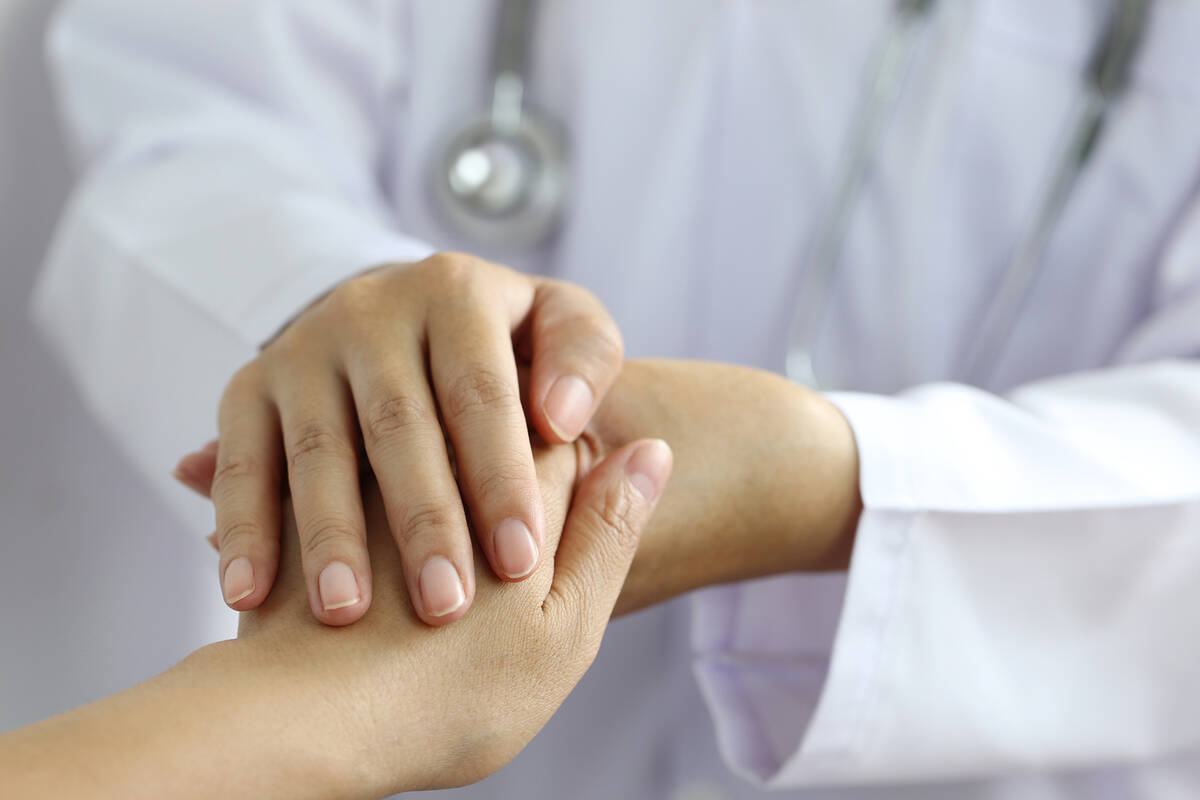Lymphoma treatment advances improving patient outcomes
Question: My sister recently noticed significantly enlarged lymph nodes in her neck. Her primary care physician said he thought she had lymphoma. What is lymphoma and what is her prognosis?
Answer: Lymphoma is a group of cancers that affect the lymphocytes. To better understand lymphoma, we have to start with the white blood cells.
White blood cells are one of the three main types of cells that circulate in the blood, the other two being red cells and platelets. White blood cells are produced in the bone marrow and serve as the main element of the immune systems that helps defend the body against infections, such as the flu, COVID-19 and other diseases.
There are five main types of white blood cells: neutrophils, eosinophils, basophils, monocytes and lymphocytes. In a normal state, these cells die and get replaced by new cells frequently.
The lymphocytes, which are a major type of white blood cells, could develop mutations in their DNA, preventing them from dying. The immortality of these cells is a defining feature of cancer. Cancer of the lymphocytes is called lymphoma.
Lymphoma could be regarded as a cancer of the white blood cells, cancer of the immune system or cancer of the blood, in essence, because of the origin of the cells and not because of the location of the cancer.
Subsequently, these abnormal lymphocytes start dividing and creating copies. The accumulation of these cells builds tumors. Most often these tumors present as enlarged lymph nodes.
Lymphomas are very diverse cancers. There are more than 80 different types. They are broadly divided into two categories: Hodgkin lymphomas and non-Hodgkin lymphomas. These lymphomas may affect any part of the body, but they most frequently involve the lymph nodes, which are part of the lymphatic system. The lymphatic system is a network of tubes throughout the body that drain fluid, called lymph, which leaks from the blood vessels into the tissues and empties back into the bloodstream.
Depending on the subtype of disease, lymphoma could be a very slow-growing cancer that might not require treatment at all. Conversely, other lymphomas may be fast-growing and aggressive, requiring immediate treatment. Thus, it is important to visit with a specialist who can confirm the actual subtype of lymphoma at diagnosis since it will be significant to managing the cancer.
There are other causes of enlarged lymph nodes that should be considered, such as viral and bacterial infections, autoimmune diseases, or other cancers.
In many cases, patients present to their primary care providers with enlarged lymph nodes and receive treatment with a course of antibiotics. However, if the lymph nodes do not respond to treatment, other causes, such as lymphoma or other cancers, should be considered.
A cancer diagnosis can be scary for anyone, but there is a lot of encouraging news in lymphoma treatment. Although the main first-line treatment for most lymphomas is still chemotherapy and immunotherapy, many advancements in recent years have improved the outcomes for many patients.
The most recent treatment advances include:
— The introduction of chimeric antigen receptor-T cell therapy (CAR-T), which are T cells that are genetically engineered to attack cancer cells when reintroduced to the body. The addition of CAR-T, as well as other cellular based therapy, has significantly improved the outcomes of patient with relapsed or refractory diseases. A significant number of clinical trials are focusing on studying different CAR-T constructs and other types of cellular therapies in different lymphoma types. This is transforming the treatment for lymphoma, which was mainly based on chemotherapy.
— Targeted therapies have been approved for certain cancers and are being studied for others.
— A new class of antibodies is being evaluated and has shown good results in many types of lymphomas.
It is always advisable to seek a second opinion with a lymphoma specialist when receiving a new diagnosis of lymphoma. A lymphoma specialist can partner with a local oncologist to deliver the best care.
Dr. Muhamad Alhaj Moustafa is a hematologist and medical oncologist with the Mayo Clinic Cancer Center in Jacksonville, Fla.


















